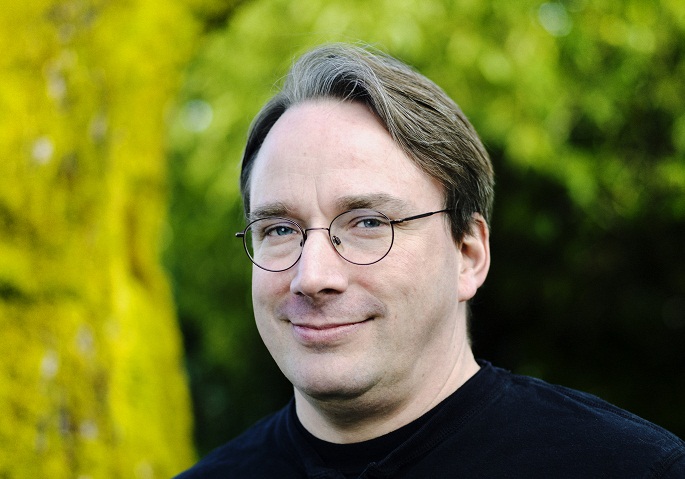

Linux creator Linus Torvalds
Linux creator Linus Torvalds jokingly hinted that the US National Security Agency (NSA) had asked for a backdoor into the open source operating system, in a LinuxCon keynote presentation.
The hour long presentation on 18 September, with questions from the audience, was designed to encourage others to join as developers of the kernel which he has been taking care of for the last 22 years. Torvalds characteristically outspoken answers could well encourage a new wave of activity.
One of the first questions that Torvalds was asked was about how easy or hard it is to actually get involved with Linux kernel development.
“We have an amazing amount of developers, and in some respects it is hard to get involved,” Torvalds said. “In other respects, of all the open-source projects that are out there, it is easier to get involved in Linux because there is so much to do.”
Torvalds pointed to the numbers of people currently involved in Linux. “It can’t be that hard to get involved,” he said.
For Torvalds, hardware innovation is part of the fun in doing kernel development He noted that when he started Linux 22 years ago, the hardware was very different than it is today. He expects that 20 years from now the hardware will change even more.
Yet Torvalds considered that hardware innovation might at some point slow down. He said he’s interested in seeing how the industry will react when Moore’s Law no longer works. In his view, how far silicon innovation can go is just a matter of physics.
“The reason why Linux runs well on cell phones is because cell phones grew up, and they are thousands of times more powerful than the original machine I used to build Linux,” Torvalds said. “People like to pay lip service to Moore’s Law, but in 10 years it will be really tough.”
Virtualisation is a direction that many in the hardware community are taking, but it’s not an area of interest for Torvalds.
“I don’t’ want to have anything to do with virtualisation stuff,” Torvalds said. “I want to run on hardware; I’m a real man.”
Torvalds was also asked if he had ever been approached by the U.S. government to insert a backdoor into Linux.
Torvalds responded “no” while shaking his head “yes,” as the audience broke into spontaneous laughter.
During the session, Torvalds also explained why he became a developer in the first place. He said that when he started, he didn’t have money to run Unix on his own machine. He also noted that his friends were playing games on their computers that he couldn’t afford, so he had to learn to program.
“Necessity made me try to do something,” Torvalds said.
While Torvalds has a full life outside Linux, it is at the core of his existence, he said.
“I don’t see any project coming along being more interesting to me than Linux,” Torvalds said. “I couldn’t imagine filling the void in my life if I didn’t have Linux.”
What do you know about Linux? Take our quiz!
Originally published on eWeek.
American space agency prepares for testing of Boeing's Starliner, to ensure it has two space…
As UK and Europe develop closer military ties, European Commission says it will invest €1.3…
Zuckerberg seeks to revive Facebook's original spirit, as Meta launches Facebook Friends tab, so users…
Notable development for Meta, after appeal against 2021 WhatsApp privacy fine is backed by advisor…
First sign of shake-up under new CEO Lip-Bu Tan? Three Intel board members confirm they…
Trump's nominee for SEC Chairman, Paul Atkins, has pledged a “rational, coherent, and principled approach”…